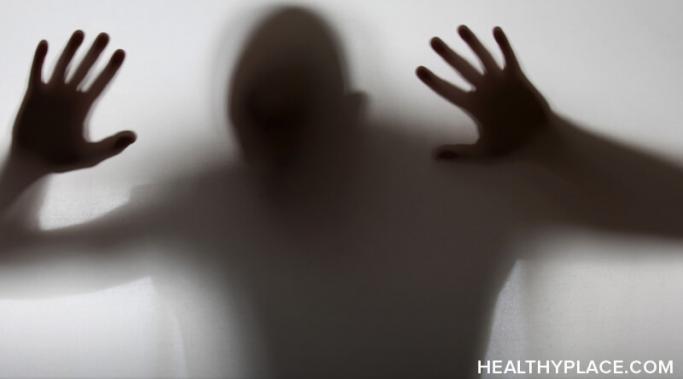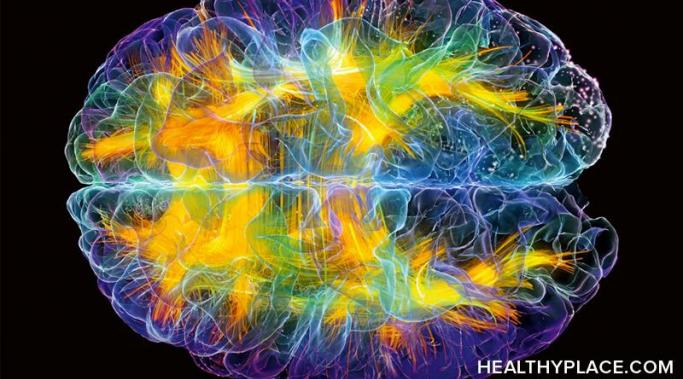Many abuse survivors grapple with feelings of shame after abuse. When someone develops posttraumatic stress disorder (PTSD) as a result of her abuse, that shame can become a long-term problem. Shame after abuse doesn't have a rational basis, but even people who know it's irrational to feel shame over being abused can still experience it. Unfortunately, emotions don't always follow logic.
PTSD Symptoms
One of the things I find most frustrating about living with posttraumatic stress disorder (PTSD) is the impact PTSD has on my sex drive. I am a private person, and sex is a decidedly personal issue for many people, so I've put this topic off many times. However, the problems that PTSD can bring to partners don't go away on their own, so let's explore the potential difficulties that PTSD symptoms can bring to a sexual relationship.
Complex posttraumatic stress disorder (C-PTSD) and perfectionism often occur together. What drives someone with C-PTSD towards clinically significant perfectionism? Generally speaking, perfectionism becomes clinically significant when it results in an excessive or unrealistic need to perform to exceedingly high, self-imposed standards. The drive for perfection is so strong that it can interfere with work, education or relationships. For individuals with C-PTSD, the need for absolute excellence can become a means of dealing with fear and anxiety created by ongoing trauma. Let's examine how trauma drives these unrealistic expectations, and how to set more realistic goals.
Do you ever feel like you're in a mental fog, you can't think straight, or as though you have to labor to access even the simplest thoughts? I feel this way often, and it used to make me panic, like I was losing my mental faculties. Then I realized that "mental fog," aka "brain fog," (not clinical terms) or confusion can actually result from posttraumatic stress disorder (PTSD). Triggers, stress, and anxiety can heighten feelings of mental fog--leaving those of us with PTSD feeling even more vulnerable and confused during the very moments when we most need to feel safe and in control.
Posttraumatic stress disorder and psychosis? What do you think of when you hear the term "psychosis?" Most people know that it is a serious mental illness symptom that involves a radical disconnection from objective reality. Not everyone knows, however, that sometimes having posttraumatic stress disorder (PTSD) can lead to psychosis.
For many individuals with posttraumatic stress disorder (PTSD), short-term memory loss is a significant concern. While working to calm and organize memories of trauma, individuals with PTSD may also struggle to recall simple, everyday information. Short-term memory loss can leave an individual with PTSD with concerns over deteriorating cognitive functioning, and uncertainty about just how much forgetfulness is reasonable and how much becomes a medical concern.
Difficulties with posttraumatic stress disorder (PTSD) and intimacy are common, regardless of the nature of the trauma leading to PTSD. A quick search of the Internet will return dozens of links to websites regarding PTSD and intimacy and the challenges PTSD presents in maintaining intimate relationships. There is a flood of information regarding trust issues, poor communication, closeness, violence, sexual dysfunction, and more. However, in my case, all the facts and statistics do is cause my eyes to glaze over without really getting to the point. In an intimate relationship, partners usually come to understand each other's behaviors. What really happens in a relationship when PTSD and intimacy collide?
Understanding how stress from positive change adds to our stress load improves our self-care and helps us stay on the path to posttraumatic stress disorder (PTSD) recovery. While the word "stress" applies to life-altering situations like traumatic or stressful events as often as it pertains to a long to-do list, it is not typically associated with times when things are good. However, positive change and stress do exist together and it helps people with PTSD to recognize them when they occur.
Sleep deprivation is a common complaint among people who experience posttraumatic stress disorder (PTSD). Research shows that at least 50% of individuals with PTSD have experienced recurring nightmares, and the majority of people with PTSD report either difficulty falling asleep (sleep onset insomnia), or trouble staying asleep long enough to feel rested (maintenance insomnia). Even though sleep difficulties often accompany PTSD, their importance might be underrepresented. Knowing how to recognize the symptoms of sleep deprivation and how to manage them are useful tools in treating the symptoms of PTSD.
The effects of posttraumatic stress disorder (PTSD) on relationships when both partners have PTSD create both problems and benefits. Living in the aftermath of trauma is difficult enough on its own, but navigating a relationship in which both partners have PTSD can be an emotional minefield. Fortunately, learning how to be in a relationship with someone who has PTSD is easier to understand when you live with PTSD too.









